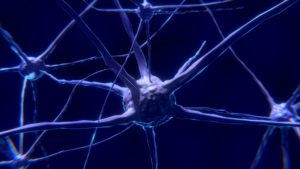The Role of the Central Nervous System in RSD
There are millions of people who live with a chronic medical condition in the United States. Examples include obesity, diabetes, chronic lung disease, and congestive heart failure. One long-term medical condition that is often overlooked is chronic pain. Despite the stigma that often surrounds this disease, people who live with chronic pain have significant quality of life issues. Pain can prevent them from participating in activities with their loved ones and can even lead to personality changes. According to a recent study that was published by the American Academy of Pain Medicine (AAPM):
- Over half of the individuals surveyed admitted to having severe pain (such as back pain, musculoskeletal pain, or nerve pain) at some point in the two weeks before the study
- About one in eight individuals had missed at least one day of work in the past two weeks
- On average, the individuals surveyed lost close to 5 hours of work per week due to chronic pain
- This missed time from work cost the economy over $60 billion
- About three-quarters of this lost income was not due to missed work but due to decreased work performance by those who tried to fill in for the missing person
Why is this pain so severe and why do people miss work? One possible explanation could be a diagnosis of Reflex Sympathetic Dystrophy (RSD), which has also been called Complex Regional Pain Syndrome (CRPS). This is a disease of the nervous system which can produce extreme symptoms.
The Role of the Central Nervous System
The body relies on a complex network of nerves to transmit signals where they need to go. The brain and spinal cord make up the central nervous system and use nerves to transmit motor commands to the rest of the body. The central nervous system also receives sensory inputs via nerves that return from the limbs, chest, torso and other organs. The central nervous system also relies on chemical signals, called hormones, to modulate various bodily functions. The central nervous system is responsible for interpreting signals from the nerves that transmit:
- Pain
- Touch
- Temperature
- Pressure
- Proprioception, also called coordination, of the limbs
Some diseases, such as RSD, can cause problems with the central nervous system. These problems can be interpreted by the brain as severe pain.
RSD as a Disease of the Central Nervous System
RSD can have an extreme impact on the central nervous system. Research studies have been completed which demonstrate that individuals with RSD process signals from the peripheral nerves differently. Examples of changes in signal processing include:
- Issues processing painful stimuli
- Evidence of hypersensitivity to touch
- Problems interpreting temperature changes
- Changes in the somatomotor system (sweat glands, hair growth, blood vessel modulation)
This is evidence that RSD is a systemic disease and could help explain why RSD could develop from something as trivial as a sprained ankle. If the central system misinterprets one signal from the periphery, such as with a sprained ankle, it could lead to chronic, life-long symptoms. Therefore, treatments should center around targeting the central nervous system as the source of such severe symptoms. Examples of possible treatment options include sympathetic nerve blocks targeting these problematic nerves and even sympathectomies, or transections of the sympathetic nervous system.
People who are living with RSD often have to miss work due to severe pain. Furthermore, this disease could even be triggered by a traumatic accident in the workplace. Because of the severe symptoms and missed work time that this illness can cause, individuals and their families should meet with an RSD attorney in Sacramento. The circumstances of the diagnosis deserve to be investigated to the fullest extent possible.
Related Articles by Ed Smith
Contact an Experienced RSD Attorney in Sacramento
I’m Ed Smith, an RSD Lawyer in Sacramento. If someone you know has been having issues with pain due to Reflex Sympathetic Dystrophy, please call me at 916-382-0693. I am available to provide friendly, free legal advice.
Everyone is asked to look at my sample results here.
Image Citation: Pixabay hosted the image at the start of this page. The CC0 Creative Commons License has granted permission to show it here.
:dr llo [cs 692]

